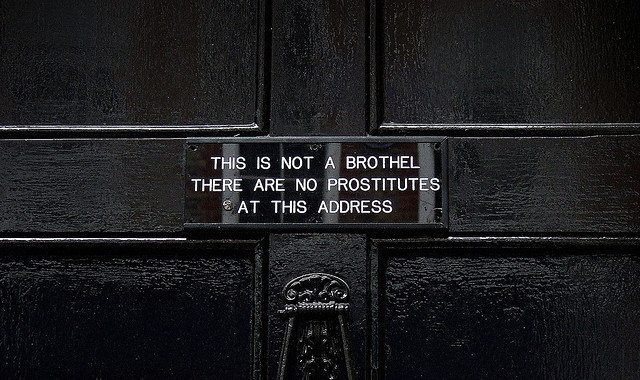
News
Big Change to Canadian Prostitution Laws
This just in: prostitution is now very much legal in Canada.
In the Great White North, the actual physical exchange of money for sexual acts has always been legal. However, most prostitutes still broke the law because many prostitution related activities, such as solicitation, keeping a brothel, or living on the avails of prostitution were against the law.
For years, advocates hoping to improve the living conditions for sex workers have been arguing that these laws violates the guaranteed rights to life, liberty, and security. Thirty-four years ago, the last time such a suit made it to the Supreme Court, the justices ruled that the prostitution laws should stay in place.
But today, the Supreme Court ruled 9-0 that the laws did in fact violate the Canadian Constitution’s Charter of Rights and Freedom, and they were struck down, making it much, much easier to take part in legal prostitution. The challenge was brought to the court by three women who formerly participated in the sex trade. It made it to the Supreme Court as the result of a ruling in an Ontario-based court last year. The Supreme Court upheld the decision. The logic behind the Court’s ruling is that the laws in place endanger the lives, health, and safety of the women who make their living doing an activity that is, in itself, legal.
The counter argument to that point of view was that it is a given woman’s choice to engage in prostitution, and so the laws should not be written to protect her for her own choices. But the justices strongly disagreed with that argument. Justice Beverly McLachin, Chief Justice of the Supreme Court of Canada stated, “whether because of financial desperation, drug addictions, mental illness, or compulsion from pimps, they often have little choice but to sell their bodies for money”. As a result, the choice argument was simply not valid.
It’s important to note that the decision does not allow prostitution permanently. It gives the Legislature one year to draft replacement laws that are not as sweeping and protect the men and women who work in the sex trade.
Among Canada’s peers and allies, there are a wide range of prostitution laws. Some nations, like the United States, flat out ban prostitution and any related activities (with the sole exception of some jurisdictions in the state of Nevada). In contrast, nations such as the Netherlands and Germany have legalized prostitution by women who are of a consenting age. Prostitutes are recognized as legitimate workers, and they are registered.
It’s pretty much accepted that prostitution will happen–there’s a reason that it is called the oldest profession in the world. Whether or not legalizing prostitution has beneficial or negative effects is hotly debated. While legalizing prostitution may lead to more human trafficking, and more organized criminal activity, it does allow a country to keep a registry of sex workers and tax the acts sold.
There were very mixed reactions to the ruling. Canadian sex workers were very pleased. A former sex-trade worker who brought the case, Terri-Jean Bedford stated, “now the government must tell Canadians, all consenting adults, what we can and cannot do in the privacy of our home for money or not. And they must write laws that are fair”.
On the other hand, there are groups that are decrying the change in prostitution laws. Kim Pate is the Executive Director of the Canadian Association of Elizabeth Fry Societies. The Elizabeth Fry Societies advocate for the right of women and girls. Pate stated, ” it’s a sad day that we’ve now had confirmed that it’s OK to buy and sell women and girls in this country. I think generations to come — our daughters, their granddaughters and on — will look back and say, ‘what were they thinking?'”
The decision of the Canadian Court is interesting, because it indicates that the Justices didn’t necessarily want to make it easier for prostitution to occur, they just wanted to protect the women who are forced into the trade. By giving the Legislature a second chance to write constitutionally appropriate laws, the reprieve for sex workers will probably not last long. However, it is safe to say that the laws will never be quite as restrictive as they were before today’s ruling.
—
Anneliese Mahoney (@AMahoney8672) is Lead Editor at Law Street and a Connecticut transplant to Washington D.C. She has a Bachelor’s degree in International Affairs from the George Washington University, and a passion for law, politics, and social issues. Contact Anneliese at amahoney@LawStreetMedia.com.
Featured image courtesy of [Paul via Flickr]








Comments